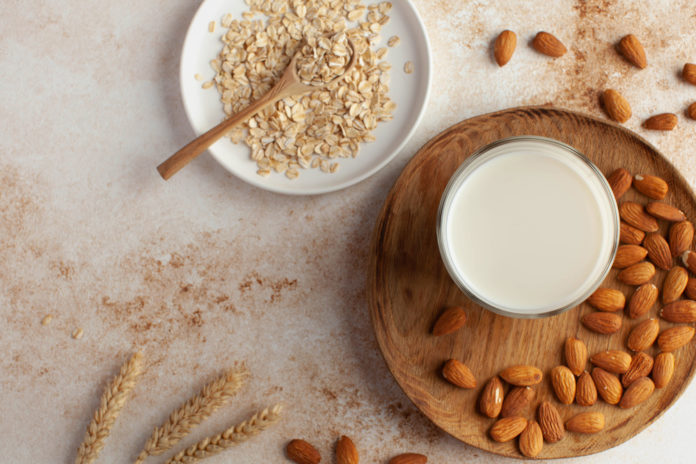In the last few years, plant-based dairy products have seen a huge increase in popularity. The traditional dairy industry has many problems, such as being unsustainable, harmful for those with lactose intolerant, and others.
Many people are now looking at milk alternatives. They are appealing because they have a longer shelf-life than dairy milk and are safer for people with dairy allergies. Also, milk alternatives do not contain harmful substances like growth hormones or pus that are sometimes found in cow’s milk.
Every grocery store now offers several milk alternatives! Oat milk and almond are two of the most common milk alternatives today. We’ll explain the differences between the two so that you can pick the best milk for you.
Oat Milk
A glass of oatmilk contains approximately 3 grams of protein and 2 grams of fiber. It also contains 16 grams of carbohydrates. Oat milk is more filling than almond milk due to its higher carbohydrate and protein content.
It has a thick and creamy consistency, making it perfect for soups or lattes. Almond milk has a higher concentration of vitamins and minerals than oat milk. Oat milk contains 50% of daily recommended Vitamin B12 and Riboflavin. It contains 20% of daily recommended amounts for Phosphorus Vitamin D Calcium and Vitamin A.
The oat milk has around 120 calories per cup. This makes it less appealing to those who are watching their calorie intake. As a comparison, a cup of whole dairy milk has about 150 calories.
Almond Milk
Almond milk is lower in calories than oat. Almond milk has only 39 calories in a cup! Almond milk is much healthier than dairy or oat milk.
A lower calorie count comes with a lower nutritional value. Almond milk contains 1 gram fiber, protein and carbohydrates per serving. Almond milk has less of a tendency to satisfy your hunger than oat or rice milk.
Almond milk is a light alternative that can be used liberally in coffee, smoothies and even mac and cheese dishes to reduce the overall calories. Almond milk is creamy and thin. It closely resembles cow’s milk.
Almond milk has fewer vitamins and minerals than oatmilk. Almond milk contains no Vitamin B12 and very little Riboflavin or Phosphorus. In terms of Vitamin D and calcium, however, almond and oat milks are similar.
Almond milk is lighter than oatmilk, with only 3 grams of saturated fat per cup.
Conclusion
Almond and oat milk are both great alternatives to traditional milk. Both have different nutritional value to consider but are both great alternatives to milk!



